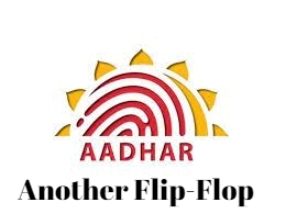

By Our Editorial Team
First publised on 2022-05-31 07:07:01
UIDAI issued an advisory for people to use masked (which displayed just the last four digits of their Aadhar number) Aadhar when they were asked to submit the same. The Central government stepped in to cancel that advisory and instead asked citizens to observe "normal prudence" when giving photocopies of their Aadhar card. How is an ordinary citizen expected to know what is "normal prudence"? This flip-flop has caused more confusion in the minds of the people.
With everyone - starting from dealers of mobile companies for giving out new connections to hotels at the time of checking in - demanding photocopies of Aadhar card from citizens, there is no way a person can avoid disclosing the number which has the potential of being misused and harming his or her privacy. While the Supreme Court had ordered that private entities cannot demand Aadhar as proof of identity or address from citizens, the Centre had issued an ordinance to nullify the effect of that order. That had opened the doors for all private agencies to demand Aadhar photocopies from citizens even when their purpose could be solved with other identification documents.
But with privacy concerns refusing to go away and laws in India not stringent enough to prevent misuse of data collected by private agencies (a data protection law is still not in place despite a lot of discussion and a draft being ready), there has to be some way to prevent any and everyone from demanding Aadhar photocopies. Although checks exist in the Aadhar system to prevent violation of privacy (for instance, one can lock biometrics), it is not known to most and hence not effective. The present flip-flop is not good as it fails to provide any clarity on the issue. Since the problem of misuse and violation of privacy is real, the government must come about with an advisory about who can demand Aadhar photocopies from citizens. All others must be advised to be satisfied with other identification documents like PAN cards, Voter ID cards or driving licence, among others.











